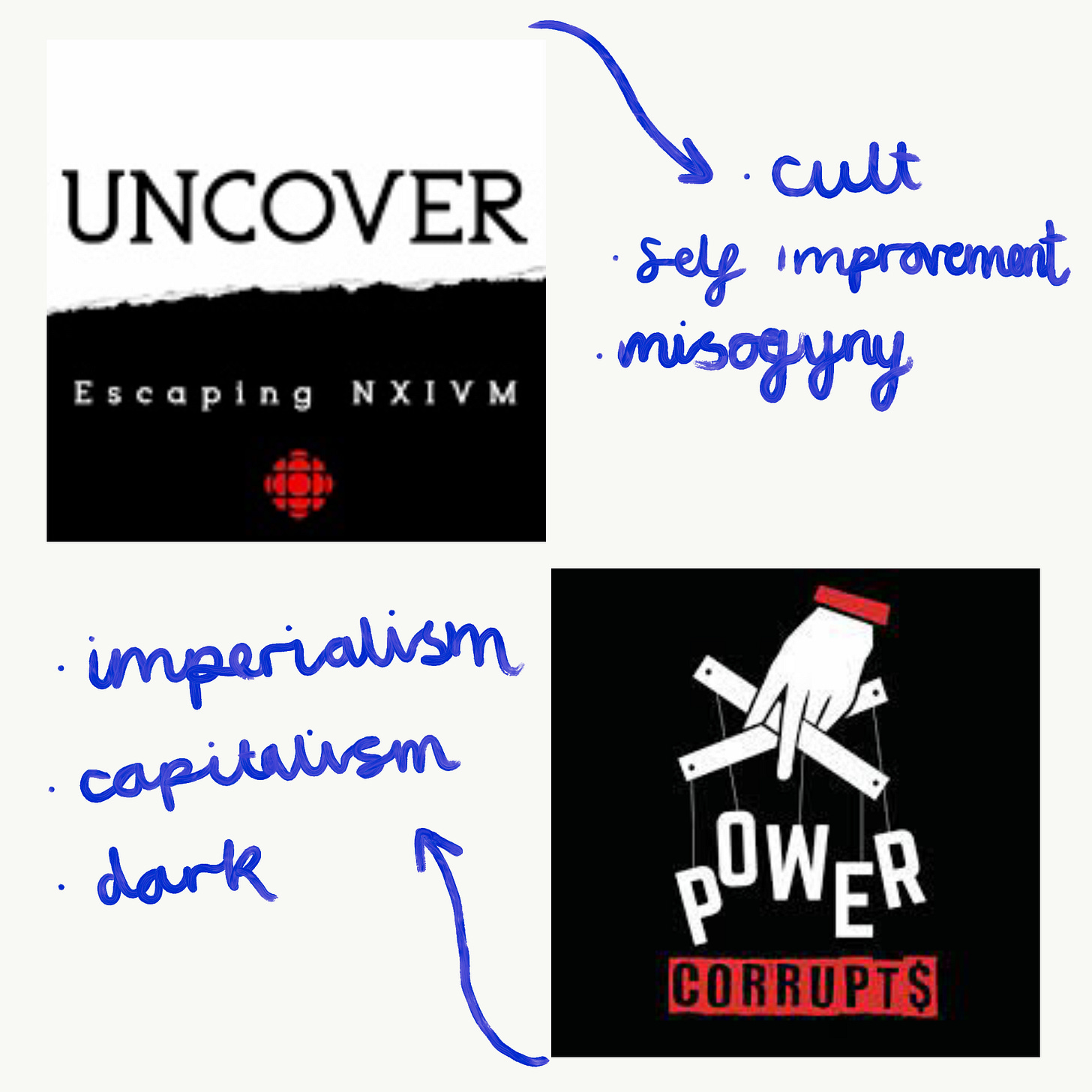Sunday Bookmarks #7
In the U.K, it is a bank holiday weekend, (we are not at work today, don’t ask me why, Yes, I’m looking at you Americans). Thus, Saturday is Saturday, Sunday becomes another Saturday and that makes today, Sunday. Time is a social construct, here are this week’s Monday Bookmarks.
READING //
I am taking my time reading Polly Barton’s new memoir, Fifty Sounds. It is the type of book that requires a pencil and a finger ready to fold corners, unless of course, you consider such acts sacrilegious, in that case, we are not the same kind of reader. It is a memoir in essays, chronicling her journey to becoming a translator of Japenese, her desire to participate in a different culture, and the nuances of traversing such spaces as a white woman, heralding from a country with an abhorrent colonial legacy. Barton is simultaneously unpicking the meta nature of language learning, the tongue twists it takes to acquire a new tongue, whilst exploring the cultural differences she experienced when moving to Japan, just age 21. As travel remains off the cards for now, I am delighted to find nonfiction that is evocative of places I long to visit or return to.
In an almost perfect coincidence, Fitzcarroldo, Barton’s publisher, has 30% off their entire catalog, and it ends tonight. If you are ordering anyway, may I be so bold as to also suggest you pick up a copy of Drive your plow over the bones of the dead by Olga Tokarczuk and translated from the Polish by Antonia Lloyd Jones, a quietly immersive story following an older protagonist in rural Poland, unpicking religion and animal rights whilst following an absurd mystery, one that lingers long after being read. I have also acquired my first Annie Ernaux, Simple Passion, also published by them, it promises to uncover the vague lines of morality surrounding affairs, an all-consuming passion. One I hope to get to in May. Although books should most definitely be judged not on their covers, the minimal design and satisfying uniformity of Fitzcarraldo editions are also hard to resist.
I also DNF’D (stopped reading, for those of you who do not spend your entire lives on bookish social media), Animal by Lisa Taddeo, a hotly anticipated fiction release from the author of Three Women. I tend to have a three-strike policy when it comes to deciding whether to stop reading a book, so these were Animal’s strikes. Firstly, handicapped was used multiple times to describe a disabled character, which is a slur, and from everything I have garnered online, Taddeo is not disabled, thus, does not hold power to use such a term in her writing. Second, a friend informed me that the n* word is used in a later chapter, please see above ‘author does not hold the power to use a term in her writing’. Racism is real, thus it is written about in books, and when done well, it can mirror real-life experiences for those who have suffered from it, I do not believe all characters we read must be good, reading is not an exercise in morality, however, I do draw my own arbitrary lines, and white able-bodied authors using slurs that do not belong to them is a solid one. My final strike may have been down to personal mood, and if I were recalling my reading experience with chronological accuracy, this strike came before the second, however, that didn’t flow as well in my imagined narrative you are now reading. The tone was off, the character lacked any redeeming feature, within itself is not a problem, after all, I am a Moshfegh fan girl. In this incidence though, it lacked all degrees of subtlety, leaving the reader with a feeling akin to being hit over the head with a saucepan, MEN HURT WOMEN, I AM AFRAID OF ASSAULT, and yes maybe that was the point, but it started to grate on me 30 pages in, so I really lacked reason to stick around. I will update you if my mind somehow changes, but for now, consider it DNF'D.
(for full transparency, I read an early review copy via Netgalley)
LISTENING //
I lost a lot of time for podcasts since April 2020. With the lack of commuting to a school or place of work, the limited time spent out of bed most weeks, and the monotony of days that repeat themselves, there didn’t seem a good stretch of time to listen. Not to mention, most of my favourites revolve around the outside world, so their content sharply pivoted to a running commentary on the pandemic and I was wanting to bury my head in the sand. There have been a couple of exceptions, Escaping NXIVM, one man’s chance run-in with an old family friend, resulting in a series of interviews where he documents the friend’s experiences living and working for Keith Raniere, in a self-proclaimed wellness group, in actuality a pyramid scheme come sex cult. It also goes without saying, I was a worshipper of Dolly Alderton and Pandora Sykes’ pop culture pod, the high low, but that may just be the most obvious recommendation this newsletter has ever given, RIP, I still dream of the theme tune.
I have fallen into a new podcast hole with Tom, on our drives to and from my healthcare appointments, it is convincingly titled Power Corrupts. We are only a couple of episodes deep, each stands alone but occasionally references previous guests. It sells itself as an investigative journalistic endeavor, to unmask the nefarious powers that be, that make our (capitalist) world go round. In episode two, ‘Guns For Hire’, podcast author Brain Klaas looks at Mercenaries, essentially private armies that can be hired by individuals, to carry out operations, often involving coups, he interviews a mercenary, another journalist whose interest lies in political coups of West Africa, as well as a businessman who was sent to a Zimbabwean jail, after his plan went awry. In ‘The art of Propaganda’ Klaas interviews expert historians who have written on Hilter, Kim Jong Un, and shares the story of a catchy Mexican pop song that was funded by the US border force, with lyrics written to discourage South American migrants from attempting to enter America illegally.
In a sea of misinformation, with Instagram infograph industrial complex working on overdrive, it is refreshing to see Klaas bring in experts and scholars to dissect the complex issues at hand, instead of spouting his own theories on what may be the cause. Each episode has relevant nonfiction book recommendations, excerpts from author interviews, imbuing each with the suggestion that further reading is required.
It has the NPR Esque air of moral superiority on occasion, with the host’s voice scarily similar to the textbook NPR liberal, however, it is balanced enough to suggest imperialism and colonialism is where most of these problems are rooted, and one white man on a podcast is not going to solve it.
LIVING WITH //
Support systems. Another weekend where I was given the opportunity to see a friend, driving a car for probably the first time this year. Whilst reveling in the joy that improved symptoms can bring, I am also (virtually) supporting a close childhood friend, who lives with one of the same illnesses like me, M.E. We fell ill within a year of each other, and although I have had periods of remission in the years prior to 2020, she has been a lot more limited by her health. We have always shared common ground with sickness, but this year it seems to have stepped into a new realm. A strange sort of symbiosis has appeared, that neither of us can explain. We aren’t religious but certainly think the universe, or someone out there, is looking out for us, as it seems we have fallen into a perfect harmony of yin and yang. I sleep poorly one week, barely managing 4 hours, she passes out for an almost solid 8, thus it is down to her to motivate me the following morning, reminding me to be kind to myself, keep resting. I am finding pain relief with new treatments, she is experiencing new and severe pain, so I am there, a toolkit on hand, organizing links to things she must order, medication to try.
This weekend it felt like her M.E hit rock bottom, crossing into the zone marked ‘very severe’, sent home from A and E, she felt hopeless, and I knew it is my only job was to keep her with me, to remind her every hour that she is loved and she is worthy of a quality of life so many take for granted. Right now, I have to hold on to the hope for both of us. It feels as though someone knows we can’t handle it if we both go down together, one of us must stay afloat, to pull the other one up, all I know is that one day, we will both be able to stop treading water, and thrive together.
Further Reading: M.E is still so poorly understood, it is so much more than fatigue. Jamison hill writes so eloquently on his experiences, being sick with M.E, amongst other fantastic contributors in Disability Visibility. His individual essay is available to read in the New York Times here.
Catch you all on another part of the internet,
Hannah





